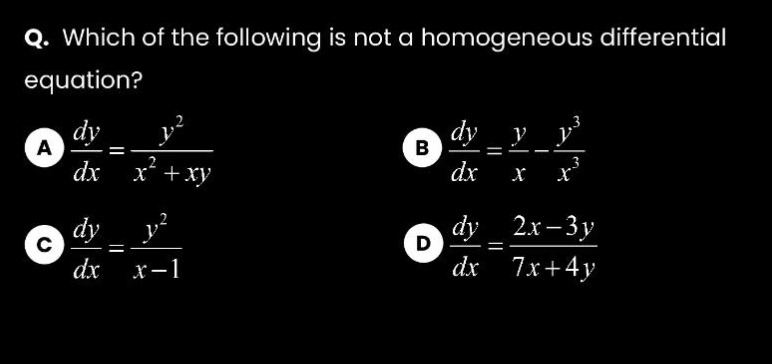Question
Question: Which of the following is not a homogeneous differential equation?...
Which of the following is not a homogeneous differential equation?

A
dxdy=x2+xyy2
B
dxdy=xy−x3y3
C
dxdy=x−1y2
D
dxdy=7x+4y2x−3y
Answer
C
Explanation
Solution
A differential equation dxdy=f(x,y) is homogeneous if f(x,y) is a homogeneous function of degree zero. This means f(tx,ty)=f(x,y) for any non-zero t. For rational functions, this implies the numerator and denominator must be homogeneous functions of the same degree.
- A: Numerator y2 (degree 2), Denominator x2+xy (all terms degree 2). Homogeneous.
- B: Can be written as a function of y/x (e.g., y/x−(y/x)3). Homogeneous.
- C: Numerator y2 (degree 2), Denominator x−1 (terms of degree 1 and 0). Denominator is not homogeneous. Thus, not homogeneous.
- D: Numerator 2x−3y (all terms degree 1), Denominator 7x+4y (all terms degree 1). Homogeneous.
